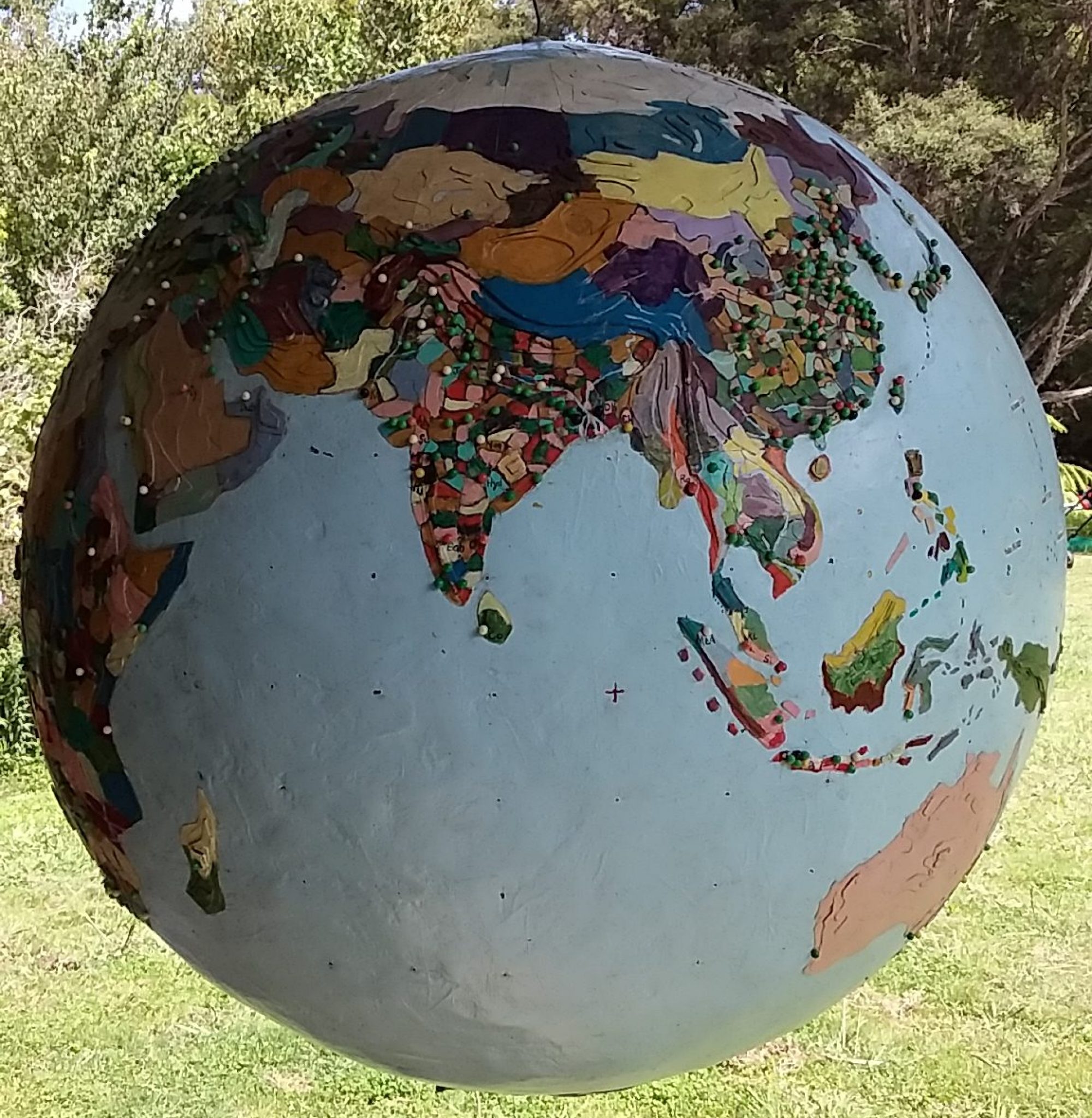Millisphere: a discrete region of roughly one-thousandth of the total world population – around seven million people but anywhere between 3.5 and 14 million will do. A lens through which to examine human geography.
Choosing the millisphere of Yorkshire highlighted for me the arrogance of attempting to describe a region the writer has never been to. It would be easy to trot out the oft quoted trope: “A Yorkshireman is a Scot with all charity wrung out of him” or to list some famous people from “God’s Own Country” but I was looking for something deeper.
Yorkshire Captain James Cook constructed an early link to the millisphere of Te Moananui (covering the Pacific) by putting up the Union Jack for the United Kingdom but also from Yorkshire are: Jeremy Clarkson, Joe Cocker, Mark Dawson, Judi Dench, Guy Fawkes, Andy Goldsworthy, Barbara Hepworth, David Hockney, Frankie Howard, Henry Moore, Michael Palin, Diana Rigg, Jimmy Savile, Harold Wilson and Ernie Wise, to name a few.
The Yorkshire anarchist philosopher, poet and art critic, Sir Herbert Read, once said: “poetry is concerned with the truth of what is, not with what is truth.” The millisphere is concerned the geographical “truths” – a region’s distinctive character and its relationship with other millispheres.
The EU administrative region of Yorkshire/Humber (pop 5.3m) covers most of the historic county of Yorkshire. York comes from the Viking word for town and it was the last English kingdom to be incorporated into the United Kingdom. The Wars of the Roses are symbolically contested to this day with the football match between Leeds United (white/York) and Manchester United (red/Lancaster).
In the 1980s thousands of miners and police faced off for bare-knuckle battles before Margaret Thatcher closed down the Yorkshire coal mines. At the time geographer Doreen Massey (Manchester Open University) in Geography Matters pointed out that poor regions tend to be blamed for their own poverty. “Northern regions are told to stand on their own feet while in the south, around London, the government subsidises development,” she said citing London’s Canary Wharf development and the channel tunnel.
During the 2008 “Global Financial Crisis” (GFC) British bankers unloaded (pound symbol) 1.3 trillion worth of derivatives that, at the time, they referred to as “crap” and “vomit. In the process every British man, woman and child handed over (pound symbol) 19,721 to the bankers. Like South Canterbury Finance in New Zealand, the robbers got bailed out and paid out by the government, the rest got austerity. It was the working class and middle class who paid, leaving seven million Britons in “precarious” employment; setting baby-boomers against millennials and the metropolitan elite against everyone else.
In the recent Brexit referendum Yorkshire/Humber voted to leave – London voted to stay. Since the GFC a regionalist party has emerged in Yorkshire. The Yorkshire Party (originally titled “Yorkshire First”) got only 1% of the votes in 2014 and 5% in the 2017 parliamentary elections, which is insignificant in a first-past-the-post system; their platform is “If Scotland can have their own parliament, why not Yorkshire?”
Sir Herbert Read believed that “the poet is necessarily an anarchist and that he must oppose all organised conceptions of the State, not only those which we inherit from the past, but equally those which are imposed on people in the name of the future.” Read was also an advocate for the importance of art in education.
Like Read, film director Francis Lee is the son of a Yorkshire farmer. Currently screening in cinemas around the county, Francis Lee’s film God’s Own Country has won first prize at Sundance and at the Berlin and Edinburgh Film Festivals.
Described as Yorkshire’s Brokeback Mountain because it depicts a love affair between two men, it also depicts the Yorkshire Landscape. “I want to see the landscape’s effect on the characters, rather than the landscape,” Lee said.
To illustrate the difference between rural Britain and metropolitan London Lee recalled being youngest family member (with the smallest hands) on a pig farm. “My mother talks about me with one hand up a pig’s vagina pulling out piglets and the other hand holding a bacon butty.” You don’t do that in the city.
